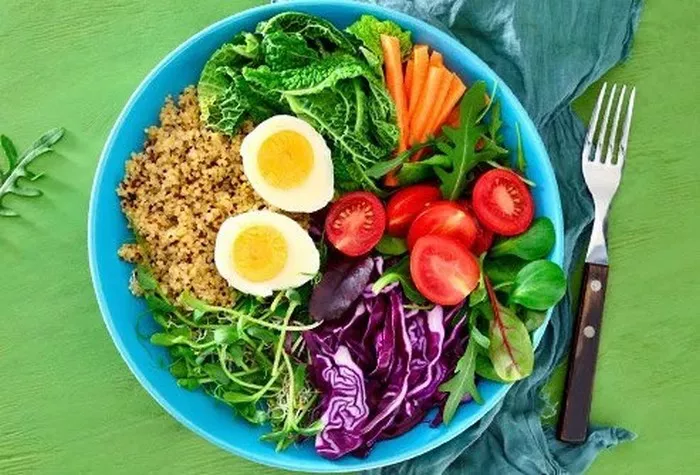Stroke is a life-altering event that can have long-lasting effects on a person’s health and well-being. Whether you are a stroke survivor or someone who wants to reduce the risk of experiencing a stroke, one crucial aspect of recovery and prevention is a healthy diet. What you eat can significantly impact your vascular health, and choosing the right foods can aid in the rehabilitation process and lower the risk of future strokes.
1. The diet of stroke patients should be regular.
Breakfast should be arranged at 6:00~7:00, lunch at around 12:00, and dinner at 18:00~19:00, with an interval of 5~6 hours between each meal, which is in line with the physiological emptying time of the stomach. Patients with poor digestion ability can add another meal in the evening.
2. Stroke patients should arrange their food intake reasonably.
Generally, the principle of “eat well in the morning, full at lunch, and small in the evening” is advocated. Each meal should be slightly full. The specific amount of food eaten is determined by personal physique, activity intensity, gender and other factors. Generally speaking, we must adhere to the “ten tennis ball” principle. There should be no more than one tennis ball-sized meat, equivalent to two tennis-ball-sized staple foods, three tennis-ball-sized fruits, and no less than four tennis-ball-sized vegetables. Avoid overeating. gluttony.
3. Stroke patients should eat easily digestible food.
Most stroke patients are elderly and have poor digestive function, especially stroke patients who are bedridden for a long time. Eating easily digestible foods such as soups and porridge can reduce the load on the gastrointestinal tract, avoid gastrointestinal dysfunction, and promote the absorption of nutrients.
4. Stroke patients should eat more foods rich in fiber.
Fiber can stimulate the gastrointestinal tract, promote intestinal peristalsis, and facilitate the digestion, absorption and emptying of food. Various vegetables and fruits are foods rich in fiber.
5. It is not advisable to eat irritating foods and drinks.
These foods can easily cause the recurrence of stroke and aggravate the condition.
6. Stroke patients should limit excessive intake of fat, sugar, and salt.
The saturated fatty acids contained in animal fats such as fatty meats and butter and foods with high cholesterol, such as egg yolks, fish roe, and animal offal, can significantly increase the cholesterol content in the blood, promote atherosclerosis, and increase blood viscosity. Similarly, eating too much salt can also increase blood viscosity and raise blood pressure, which is extremely detrimental to the condition of stroke. Daily salt should not exceed 6g. Excessive sugar can increase body fat.
7. Stroke patients are encouraged to eat a high-protein diet.
Soy products, egg whites, lean meats, and various cereals are rich in protein, which can prevent memory loss, limb weakness, edema, anemia, low resistance, etc. caused by long-term low-protein diet.
8. Stroke patients should eat more iodine-rich foods.
Such as kelp, seaweed, dried shrimps, etc. Iodine can reduce the deposition of cholesterol in arterial walls and prevent the occurrence of atherosclerosis.
9. Stroke patients should eat more fruits and vegetables.
Fruits and vegetables are rich in vitamins and trace elements, such as magnesium, potassium, vitamin C and other substances, which can lower cholesterol, enhance the density of blood vessel walls, and prevent bleeding; they can also promote intestinal peristalsis and prevent constipation. Potassium and magnesium also have a protective effect on blood vessels. Eating more fresh vegetables and fruits can also soften blood vessels, lower lipids and blood pressure.
10. Stroke patients should eat more brain-building foods
Acetylcholine is an important neurotransmitter in the central nervous system. Converted from choline. Choline is often found in lecithin-rich foods, such as soybeans and soy products, peanuts, walnut kernels, melon seeds, etc., which are brain-building foods that supplement protein and can increase norepinephrine in the brain and activate brain cell function. , Memory enhancement. You can also choose beef, mutton, chicken, fish, rabbit meat and other cellulose-containing brain food. Vitamin C can promote the production of nerve mediator 5-hydroxytryptamine, regulate the excitability of brain cells, improve the oxygen uptake capacity of brain cells, and enhance memory.
After reading this article, you’ll have a solid understanding that making the right dietary choices is an important step in recovery and prevention. So let’s dive into the world of nutrition and help stroke patients take charge of their health.






















